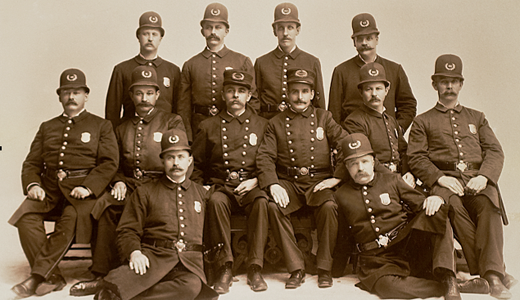 2015
2015
In the wake of the death of Eric Garner and comments by Mayor Bill de Blasio, tensions between the police and the citizens of New York City have run high. The police have responded with unofficial work stoppage for petty crimes. For two consecutive weeks, police have radically cut back in the number of arrests made and tickets given. Minor offenses and parking transgressions are often ignored, with only 347 criminal summons written in the seven days through Sunday, down from 4,077 in the same period last year. The New York Times reports:
Officers have been leaving Mikhael Naylor and his band alone. “Usually, you’d have a few officers coming around—never aggressive, really—just to tell us to move,” Mr. Naylor said at the Court Square subway station, guitar in hand. “But I’ve only seen one in the past few weeks.”
Already, the city’s drivers have collectively enjoyed a minor windfall in parking tickets not written. As a cable contractor in New York City, Gary Jeffers often has no choice but to double-park, resigning himself to a pile of parking tickets. In recent weeks, however, he has been able to double-park for longer without fear of being cited, he said.
“Of course that’s a good thing, because the traffic officers just want your money,” he said on Tuesday morning in Queens. “Now I have the right to park a bit more.”
 1878
1878
In 1895 a reform-minded Theodore Roosevelt was appointed New York City police commissioner. He proceeded to engage in an almost quixotic crusade to rid the city of vice. Although New Yorkers were initially gladdened by his promises of a less corrupt and crime-ridden town, they soon chafed against the reality of strict police enforcement. In his new position, Roosevelt tried to enforce all laws, no matter how petty, and all police conduct rules, including shutting down saloons on Sunday in observance of the Sabbath Excise law. While his popularity did not last, he is sometimes credited with helping found the first police academy, and the bigger, more fearsome police batons he reintroduced became standard gear for decades. In his 1897 resignation address, Roosevelt expressed his ideal relationship between the police and the public:
During my term of service we have striven especially to make the police force not only the terror of the burglar, the rioter, the tough, the lawbreaker and criminal of every kind but also the ready ally of every movement for good. One of my pleasantest experience has been working with all men, rich and poor, priests and laymen, Catholics and Protestants, Jews and gentiles, who are striving to make our civic conditions better, who are striving to raise the standard of living, of morality, and of comfort among our less fortunate brethren. We have endeavored to make all men and all societies engaged in such work feel that the police were their natural allies. We have endeavored to make the average private citizen feel that the officer of the law was to be dreaded only by the lawbreaker, and was ever ready to treat with courtesy, and to befriend, anyone who needed his aid.